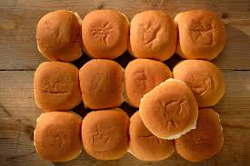|
Why Is It Called a Baker's Dozen? A baker's dozen is commonly thought to contain 13 of something, or one more than 12, which we commonly think of as being a dozen. Why is it 13, and why bakers? 
The most widely distributed explanation for this dates to medieval England, and to a time when bakers, specifically, but other merchants as well were suspected of selling their customers short–in other words, they would deliver to a customer who ordered a dozen loaves of bread exactly what was ordered, a dozen loaves of bread; the problem, many customers found, was that one or more of those 12 loaves of bread might be a bit smaller than the others and so the delivery might not be quite what the customer had in mind. In the mid-13th Century, England's King Henry III, son of King John (he of Robin Hood fame) expressed his anger at the practice that he revived an old law that regulated the price of bread based on weight, not on quantity. The punishment for delivering too little could be quite severe. In those days, bakers weren't in the habit of weighing their products. So it was quite easy for an unsuspecting baker to deliver bread or pastries that were slightly underweight because they hadn't bothered to weight them in the first place. To compensate for this possibility, bakers took to throwing in a little extra, in some cases another entire loaf of bread. So the dozen loaves of bread that were ordered numbered 13. 
It wasn't always an entire loaf that the baker added. Sometimes, bakers threw in just a bit extra; this came to be called "in-bread" or "vantage bread." The idea was the same–to provide too much, and end up with a happy customer, rather than provide too little, and end up with a stiff fine or a physical punishment. Some paranoid bakers added more than one more loaf, so some baker's dozen orders numbered 14; usually, though, it was one more of something, whether it was a whole loaf or just part of one. The other origin story for the baker's dozen's being 13 is most commonly quoted as the idea that the baker would send a vendor 13 loaves but charge for only 12, meaning that the vendor could get one loaf for free and make 100-percent profit when selling that loaf. Have a suggestion for this feature? Email Dave. |
Social Studies for Kids |





